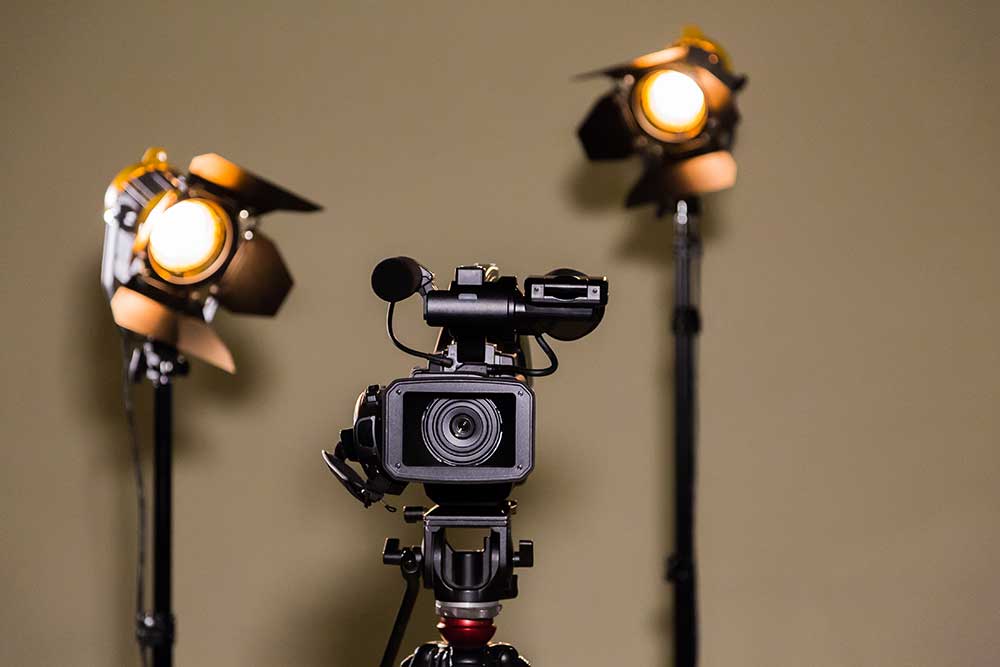High-Quality Legal Videography for Hearings.
High-Quality Legal Videography for Hearings.
Blog Article
The Duty of Legal Videography in Depositions and Tests
Lawful videography has actually emerged as a necessary device in both depositions and trials, providing a multifaceted technique to recording witness testimonies. As lawful professionals significantly acknowledge its worth, it prompts a deeper examination of exactly how these visual records can affect juror perceptions and test outcomes.

Value of Legal Videography
Legal videography plays a crucial role in the paperwork and discussion of depositions and tests. This specialized area incorporates technical abilities with lawful knowledge to produce a reliable record of procedures that can dramatically influence instance results. The appearance of legal videography boosts the understanding of witness testimony, enabling jurors and courts to observe not just the spoken words but likewise the disposition, emotions, and body movement of the witnesses.
On top of that, lawful videography gives an unbiased account of occasions, lessening the capacity for false impression that can accompany created records alone. This aesthetic paperwork serves as an important tool during trial discussions, promoting a more clear and more convincing narrative for both complainants and offenders. Moreover, the capability to replay video segments throughout court procedures allows legal groups to stress bottom lines, reinforcing their debates properly.
The value of legal videography expands beyond the court room; it likewise plays a vital duty in preserving proof for future recommendation, whether for appeals or more lawsuit. Its integration right into the lawful process is essential for making sure a reasonable and precise depiction of the facts, inevitably contributing to the quest of justice.

Refine of Legal Videography
While recording the nuances of depositions and trials, the procedure of lawful videography involves a number of essential actions that guarantee top notch, exact recordings. Initially, a professional legal videographer prepares by assessing the case materials and understanding the particular demands of the deposition or test. This prep work consists of acquainting themselves with the individuals and the context, which helps in catching significant information.
On the day of the recording, the videographer establishes up the essential tools, which typically includes high-def electronic cameras, microphones, and correct lights. Ensuring optimal angles and audio top quality is critical, as it straight influences the efficiency of the recording. The videographer interacts with attorneys and participants to establish methods, making certain that every person comprehends the recording process.
During the deposition or test, the videographer diligently tapes the procedures, paying close interest to both verbal and non-verbal cues. This consists of catching the behavior and responses of witnesses and lawyers. After the session wraps up, the videographer may modify the video for clearness and compliance with lawful requirements, creating an end product that accurately mirrors the process for future reference and use in legal contexts.
Benefits in Depositions
The incorporation of videography in depositions offers various advantages that improve the overall process of collecting evidence. One primary advantage is the ability to record witness statements with visual and acoustic integrity, supplying a more exact representation of the witness's demeanor, tone, and body movement. This multidimensional approach permits attorneys and courts to evaluate reliability better than traditional written records alone.
In addition, videographed depositions work as an effective tool for protecting testament. Must a witness become not available for test, their tape-recorded deposition can be played in court, making certain that their evidence remains obtainable and appropriate. This element significantly minimizes the threat of losing vital information that could affect instance outcomes.

Finally, videography improves the general professionalism and reliability of the deposition process, instilling confidence in clients regarding the thoroughness of their legal representation (legal videography). By leveraging technology, lawyers can dramatically boost the performance of depositions
Influence on Trials
In numerous trials, the combination of videography can significantly influence the discussion of evidence and the jury's assumption. Lawful videography catches witness testimonies and crucial evidence in a dynamic format, allowing jurors to involve with the product on several levels. This aesthetic element enhances the narration facet of a trial, offering context and psychological vibration that conventional text-based proof might lack.
Additionally, video recordings can act as powerful tools for impeachment throughout cross-examination. When discrepancies develop between a witness's previous statements and their court room statement, video proof offers an unbiased recommendation that can guide jurors' viewpoints. This immediacy and clarity can boost the credibility of an event's narrative while simultaneously weakening opposing arguments.

Future Trends in Legal Videography
As we look towards the future of lawful videography, numerous arising fads promise to improve its function within the courtroom. One significant trend is the integration of synthetic intelligence (AI) in video evaluation and modifying. AI can simplify the procedure of determining crucial moments in tape-recorded depositions, allowing attorneys to quickly access pertinent web content, therefore enhancing performance in instance prep work.
Furthermore, the rise of virtual fact (VIRTUAL REALITY) and increased truth (AR) technologies is anticipated to transform just how jurors experience evidence. legal videography. By submersing jurors in a simulated atmosphere, these innovations can supply a much more profound understanding of complex circumstances, bring about even more educated deliberations
In addition, the learn the facts here now boosting demand for remote depositions, increased by the COVID-19 pandemic, will likely continue. Legal videographers will need to adjust to new software program and systems to guarantee top quality recordings in digital settings.
Lastly, the expanding emphasis on information protection will certainly informative post require stricter protocols for keeping and sharing video proof. As the lawful landscape progresses, legal videographers need to remain abreast of these trends to keep their significance and performance in the judicial process.
Verdict
In recap, lawful videography offers an essential function in the judicial procedure, enhancing the stability of depositions and tests. As modern technology proceeds to evolve, legal videography is poised to additional transform its function within the lawful landscape.
Report this page